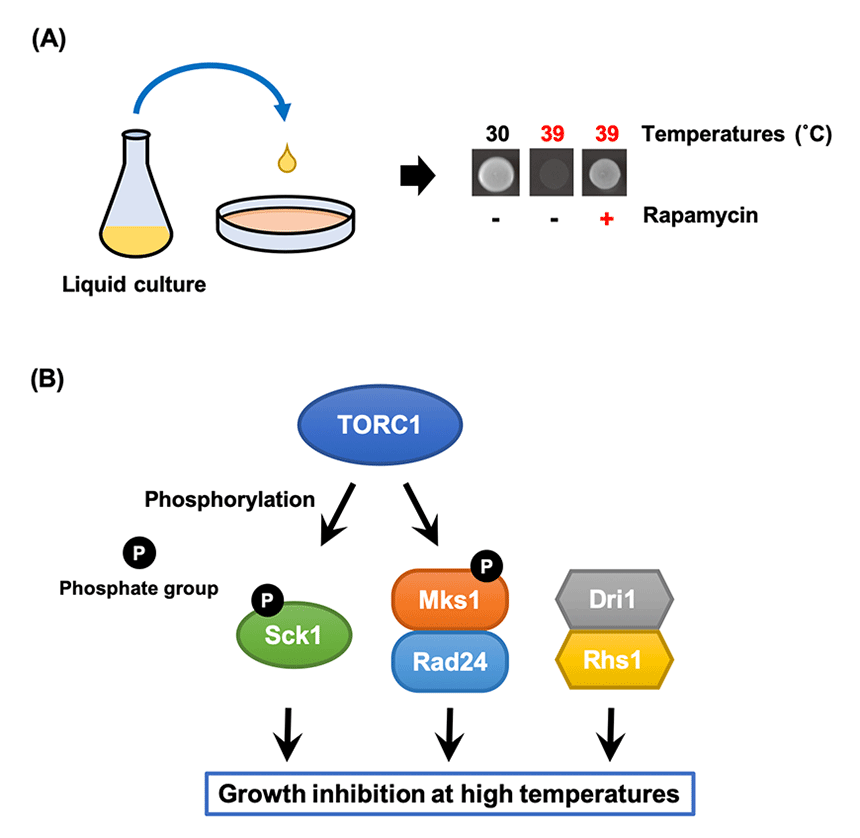2024.04.01
Mechanisms that restrict the growth of fission yeast below temperatures detrimental to cellular physiology
Microbial Interaction ・ Assistant Professor ・ Yuichi Morozumi
Cells cease to proliferate above their growth-permissible temperatures, a ubiquitous phenomenon generally caused by protein denaturing and heat damage to other cellular macromolecules. The optimal growth temperature of the fission yeast Schizosaccharomyces pombe cell is around 30˚C, and they fail to grow above 38˚C. We have recently discovered that fission yeast cells remain viable and proliferate even at 39˚C in the presence of rapamycin, a specific inhibitor of TOR complex 1 (TORC1). Moreover, the null mutant of the Sck1 kinase, a known TORC1 substrate, shows significant proliferation at 39˚C even in the absence of rapamycin. Thus, unexpectedly, the growth of fission yeast at high temperatures appears to be negatively regulated by TORC1, which has been established as a growth promoter in eukaryotes. Furthermore, our genome-wide screens have identified several additional factors (Mks1, Dri1, Rhs1 and Rad24) that restrict the high-temperature growth. These findings strongly suggest that the high-temperature growth of fission yeast is restricted by mechanisms even below the temperatures deleterious to cell physiology. Although the heat sensitivity of cell growth is a ubiquitous phenomenon, it may not necessarily be due to proteotoxic stress or other heat-induced damage to cellular components.

Growth of fission yeast cells is negatively regulated by TORC1 and other factors. (A) Rapamycin allows fission yeast to grow at high temperatures. Fission yeast cells grown in liquid medium were spotted on agar solid medium, and their growth were analyzed at indicated temperatures in the presence and absence of rapamycin. (B) A schematic model illustrating the negative regulation of cell growth under heat stress in fission yeast. Mks1 and Dri1 function as complexes with Rad24 and Rhs1, respectively. Sck1 and Mks1, both of which are regulated by TORC1-dependent phosphorylation, restrict high-temperature growth independently.
Yuichi Morozumi NAIST Edge BIO, e0023. (2024).
